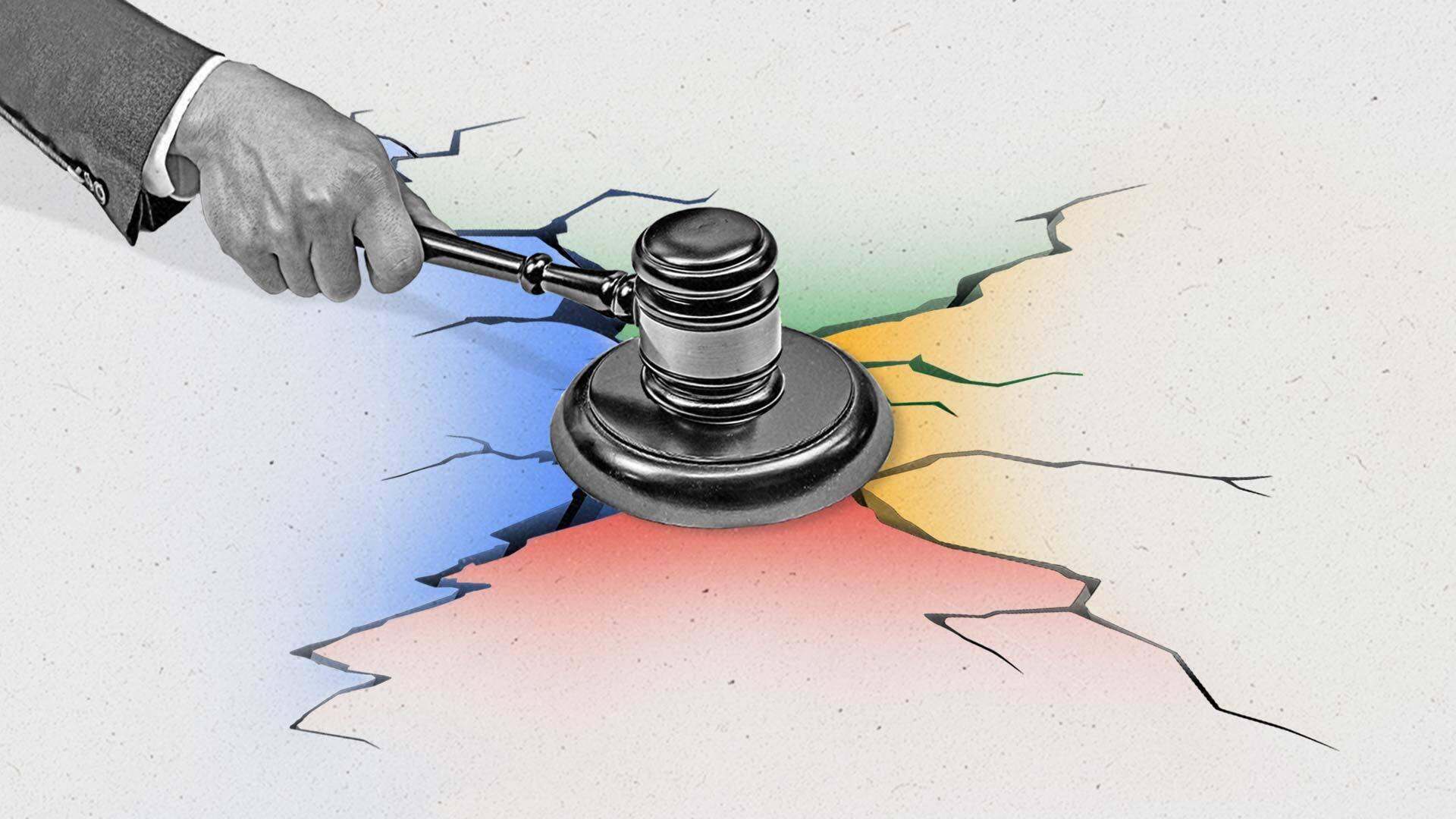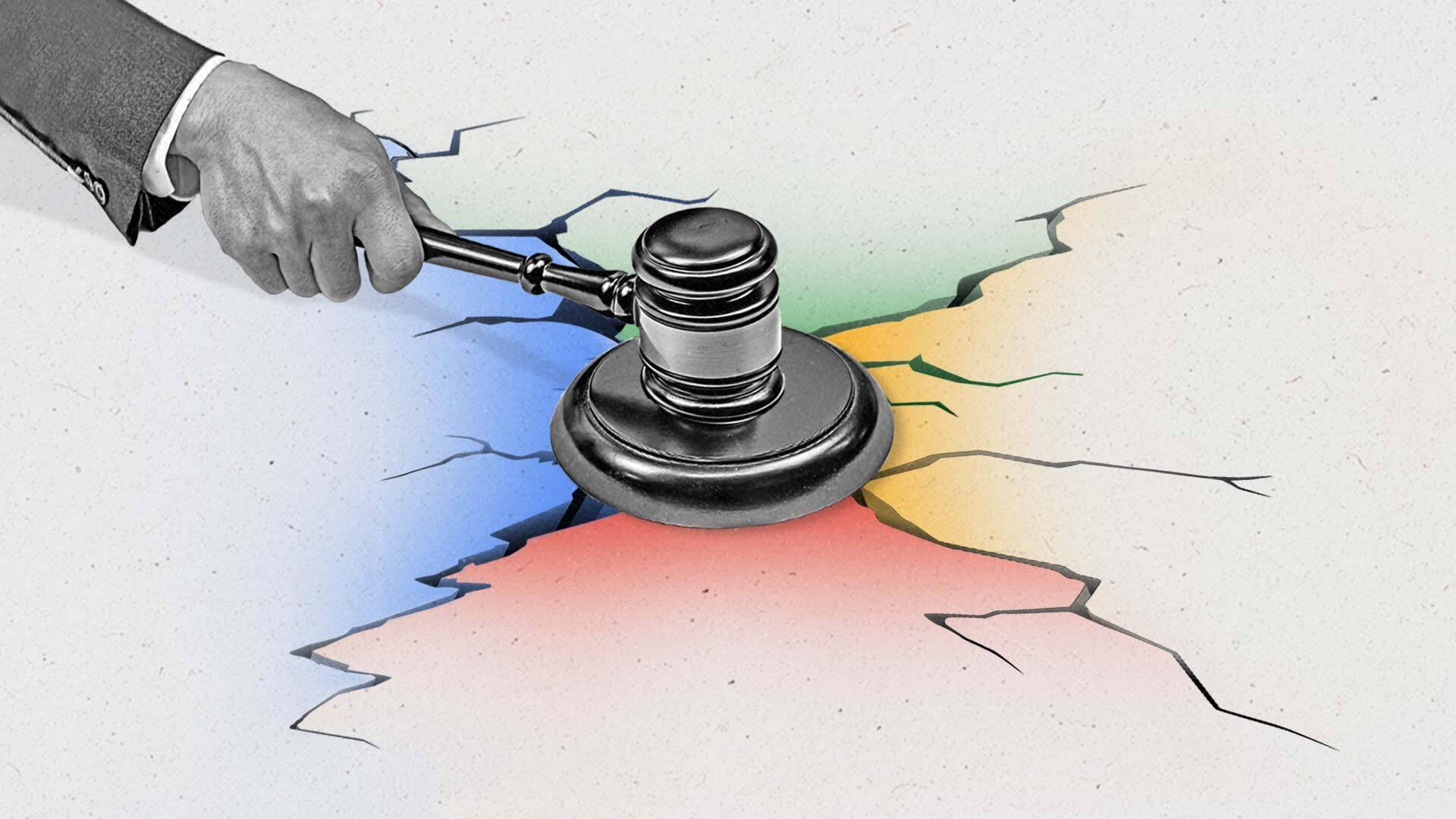What to watch for in the Google ad tech trial that could redefine digital advertising

Five weeks after a federal judge ruled that Google illegally maintained a monopoly over search, the company faces another antitrust trial, this time over its ad tech business.
Jonathan Kanter, head of the Department of Justice’s antitrust division, has said that the Google search ruling belongs on the “Mount Rushmore of antitrust cases.” Now all eyes are on the looming ad tech trial, which begins Sept. 9. Pretrial proceedings have already shed light on some of Google’s practices, as well as the DOJ’s potential case against the tech giant, according to experts who spoke with The Current.
“The way the market is defined [could] be a major first argument between the DOJ and Google,” Sarah Kay Wiley, policy and partnerships director at Check My Ads, a digital advertising watchdog group, tells The Current. “In order to prove a ‘monopoly’ exists, the first step is deciding the monopoly of ‘what’ — that is what we mean by defining the relative market.
“Google is going to try to argue that markets the DOJ puts forth — publisher ad servers, ad networks and ad exchanges — are too narrow to actually exist, but we haven’t really seen what Google thinks the market should be.”
Google, for its part, has argued that the ad tech space is highly competitive. In a blog post last year responding to the DOJ’s lawsuit, Google VP of Global Ads Dan Taylor wrote, in part, that competition “is increasing as more and more companies enter and invest in building their advertising businesses.”
At any rate, the stakes are high. Some experts say the results of the trial could pave the way for remarkable change in the digital advertising space.
“I think the ad tech trial might actually inform legislation,” says Jason Kint, CEO of Digital Content Next, referring to a bill introduced last year with bipartisan support that would target monopoly power in the ad tech industry.
“It’s a custom-designed piece of legislation that fits a lot of the symptoms here,” Kint tells The Current Report. “And so [I think] there’ll be more activity based on this, both in Congress and in the courts.”
What the DOJ’s lawsuit alleges
The DOJ and several state attorneys general sued the tech giant in January 2023, alleging that it “monopolizes key digital advertising technologies.” Particularly, the lawsuit alleged Google has maintained a monopoly in three relevant antitrust markets in the U.S.: publisher ad servers, ad exchanges and advertiser ad networks.
In its lawsuit, the DOJ writes that Google “has corrupted legitimate competition in the ad tech industry by engaging in a systematic campaign to seize control of the wide swath of high-tech tools used by publishers, advertisers and brokers to facilitate digital advertising.”
The lawsuit alleges that Google did this through two means: first, through a series of acquisitions that would “neutralize or eliminate ad tech competitors,” including by acquiring DoubleClick in 2008; and second, by forcing publishers and advertisers “to use its products while disrupting their ability to use competing products effectively.”
“If you are [operating] throughout an entire supply chain, both in the creation of content and the monetization of it, and you need to maximize your returns, then you’re going to take more and more out of that supply chain,” Kint says. “And that’s what we’ve seen happen [with Google]. And so where Google’s been successful, it’s harmed other parties.”
The lawsuit also notes that Google keeps “at least 30 cents — and sometimes far more” of each advertising dollar generated through Google’s ad tech tools, and that the company would “earn far less in a competitive market.”
“By deploying opaque rules that benefit itself and harm rivals, Google has wielded its power across the ad tech industry to dictate how digital advertising is sold, and the very terms on which its rivals can compete,” the lawsuit alleged, in part. “Google abuses its monopoly power to disadvantage website publishers and advertisers who dare to use competing ad tech products in a search for higher-quality, or lower-cost, matches.”
In April, Google sought to throw out the DOJ’s lawsuit, arguing that it fabricated markets to make its case. Google also claimed that it does not meet the 70% threshold it says is required to be a monopoly.
In its motion to dismiss, Google called the DOJ’s case “doomed,” according to Reuters, because the company’s business practices are “lawful choices about whom to do business with and product improvements that benefited Google’s customers.”
What else has happened leading up to the trial
In a pretrial hearing last week, Judge Leonie Brinkema said Google committed a “clear abuse of privilege” when considering a DOJ motion to find “adverse interference” by Google.
The motion regarded a Google policy that automatically deleted employee chat history, to which Judge Brinkema said “an awful lot of evidence has likely been destroyed.”
It’s not the first time that Google has faced scrutiny over its alleged inability to preserve potential evidence. Last year, a judge said that the company "fell strikingly short" of preserving records, as part of a ruling in a separate antitrust class-action lawsuit. At the time, a Google spokesperson said that the company has “produced over 3 million documents, including thousands of chats.”
“While Judge Brinkema didn’t go so far as to issue a formal ruling, she did say that she would draw ‘inferences’ from witnesses,” Check My Ads’ Wiley says. “I suspect that she will not take kindly to surprises at trial if any more evidentiary destruction issues arise.”
The Current is owned and operated by The Trade Desk Inc. An individual from The Trade Desk is among the 68 people included on the trial witness list.
Subscribe to The Current
Subscribe to The Current newsletter
